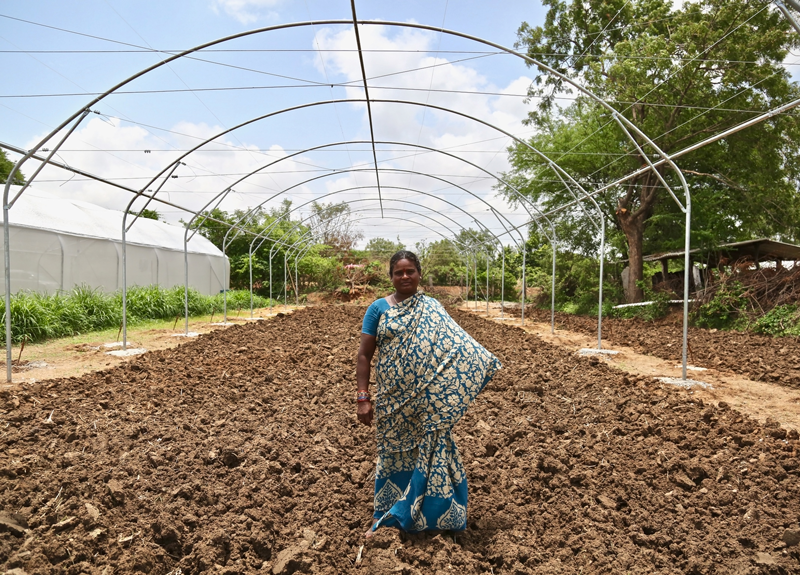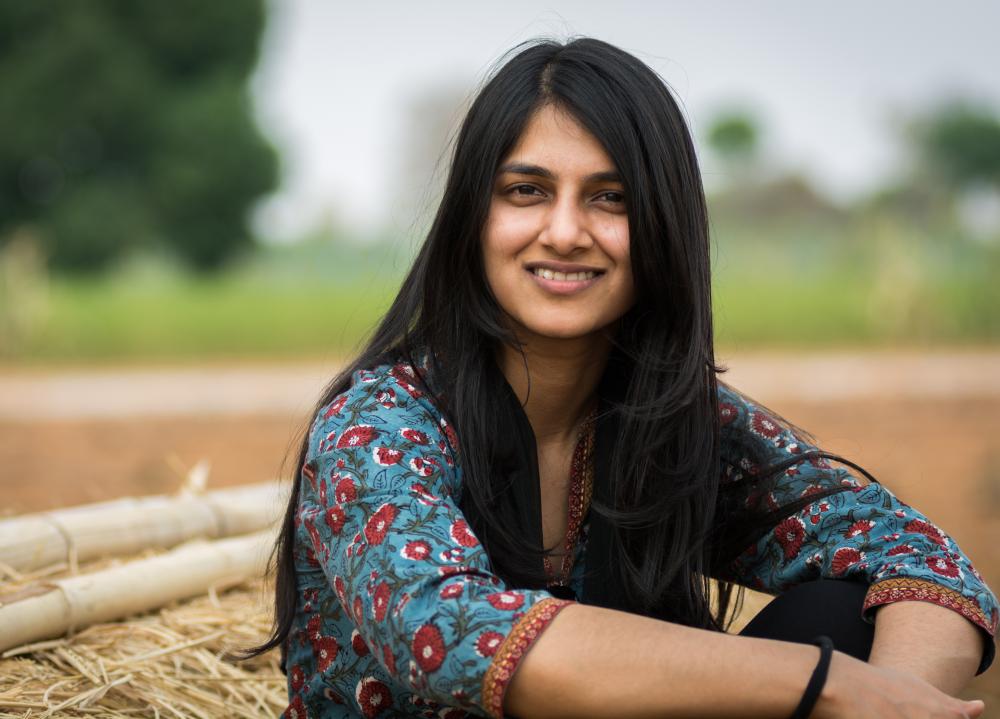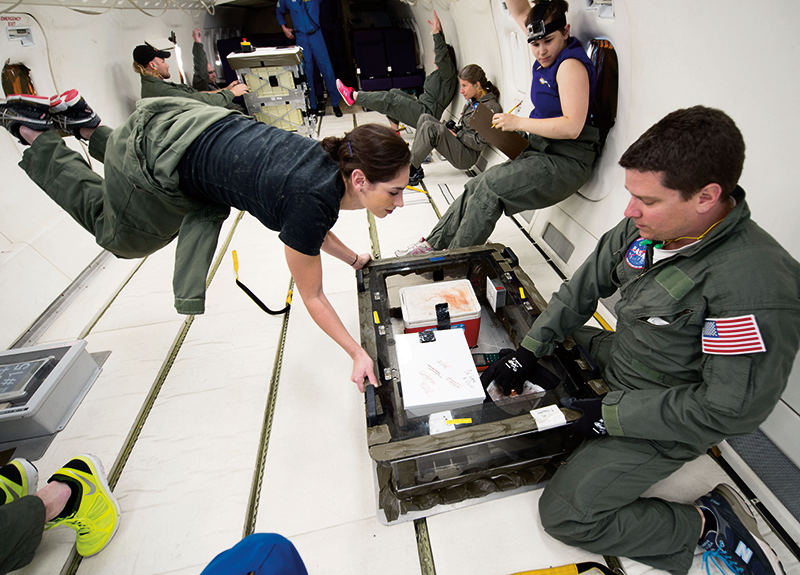Smallholder Farmers in India Adapt to Climate Change Using High-tech Greenhouses
Photo essay by Janice Cantieri (Medill '17)
Smallholder farmers in Laxmapur, Telangana, a drought-prone village in south-central India, have been adapting to climate extremes using low-cost, high-tech greenhouses. These structures are made with breathable, aluminum-coated cloth netting that reflects some of the sunlight, reducing the inside temperature. Kheyti greenhouses are also fitted with drip-irrigation systems that have allowed farmers to use about 90 percent less water, on average.
Protected cultivation allows these farmers to produce crops year-round, from the hottest, driest summer months of February to May, when temperatures can reach up to 120 degrees Fahrenheit.
The greenhouses are part of a project by Kheyti, an Indian social enterprise aimed at developing solutions that allow smallholder farmers to maintain their livelihoods and adapt to climate extremes. Kheyti was co-founded by Saumya (KSM ’17), recipient of the Kellogg Social Entrepreneur Award and ISEN’s inaugural Resnick Family Social Impact Grant.
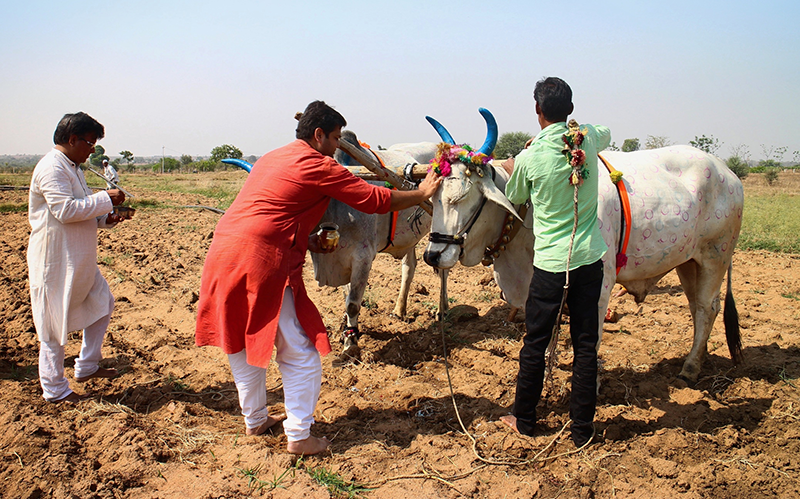
Above: Kheyti co-founder Ayush Sharma performs a traditional blessing for Ugadi, the Hindu New Year at the Kheyti Hub Farm in Telangana. A symbolic plowing is meant to bring a good harvest. (Photo: Janice Cantieri)
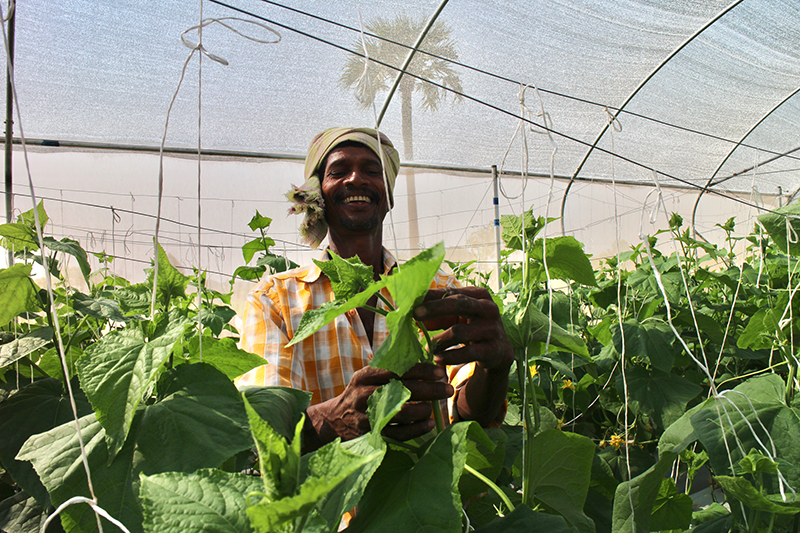
Above: Ramullu Dappu helps pick cucumbers inside of a Kheyti greenhouse. During their first four-month growing season, the fifteen Kheyti farmers produced an average of 1.3 tons of cucumbers. The greenhouses reflect some of the sunlight, which keeps the temperature inside cooler. (Photo: Janice Cantieri)
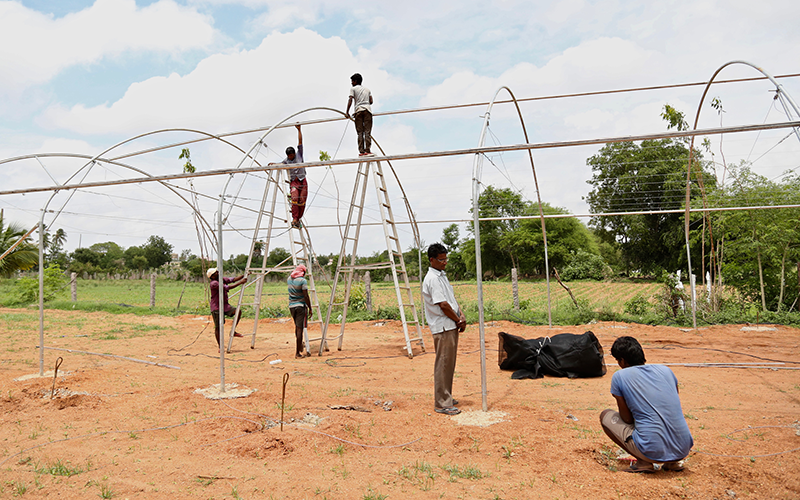
Above: Kheyti is constructing 35 new greenhouses in Laxmapur Village, and has plans to sign on 1,000 farmers by the end of the year. They plan to expand throughout India, being careful to maintain the community trust they’ve built as they scale up. (Photo: Janice Cantieri)
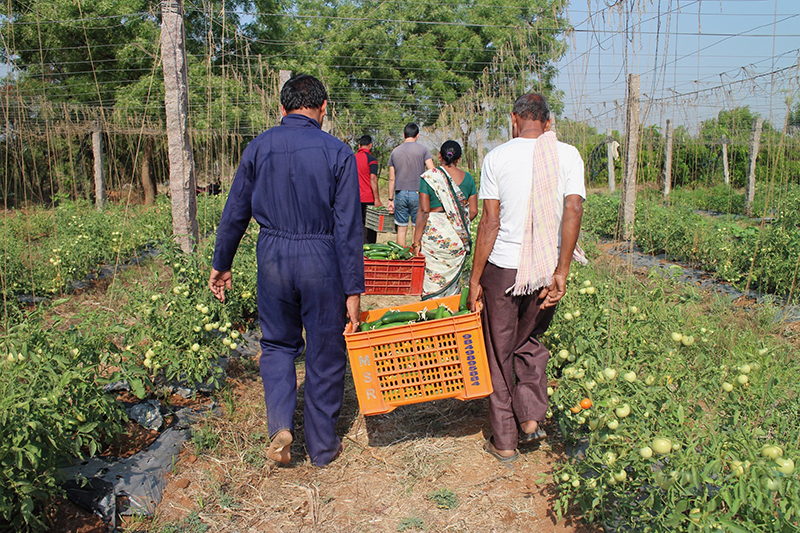
Above: Protected cultivation allows Kheyti farmers to produce year-round, even in the hottest, driest summer months of February to May, when temperatures can reach up to 120 degrees Fahrenheit. (Photo: Janice Cantieri)
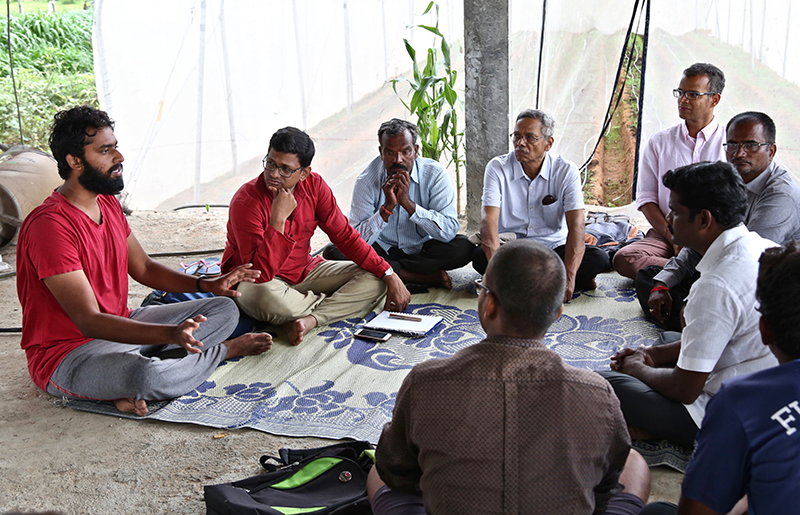
Above: Kheyti farmers gather weekly to share knowledge and discuss any challenges they are facing with their crops. At this meeting, Kheyti farm manager Srikar Mokkapetti and Kheyti co-founder Sathya Raghu explain the process of planting bell peppers. (Photo: Janice Cantieri)
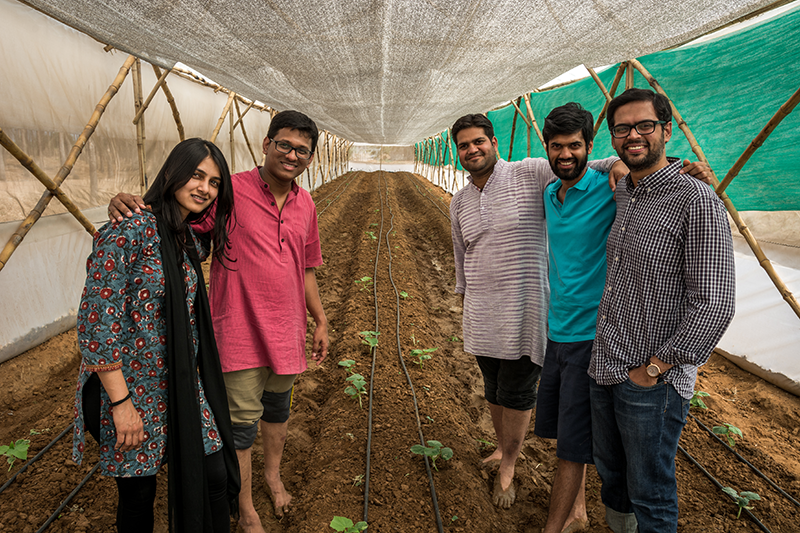
Above: The Kheyti team, from left: Saumya, Sathya Raghu, Ayush Sharma, former team member Akhil, and Kaushik Kappagantula. (Photo: Venugopal Goundla)
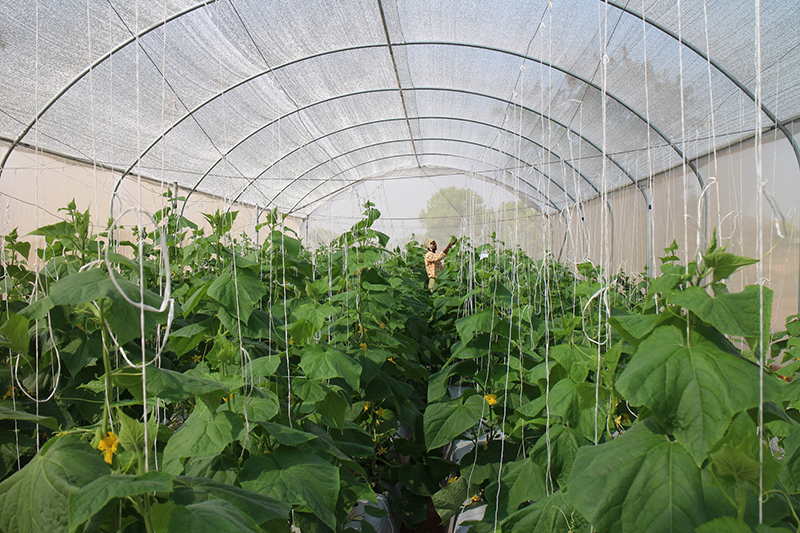
Above: Ramullu Dappu helps pick cucumbers inside of a greenhouse in Laxmapur, Telangana in India. The greenhouse is part of a project by Kheyti, a Northwestern-backed social enterprise that develops solutions to help smallholder farmers adapt to climate change. (Photo: Janice Cantieri)



